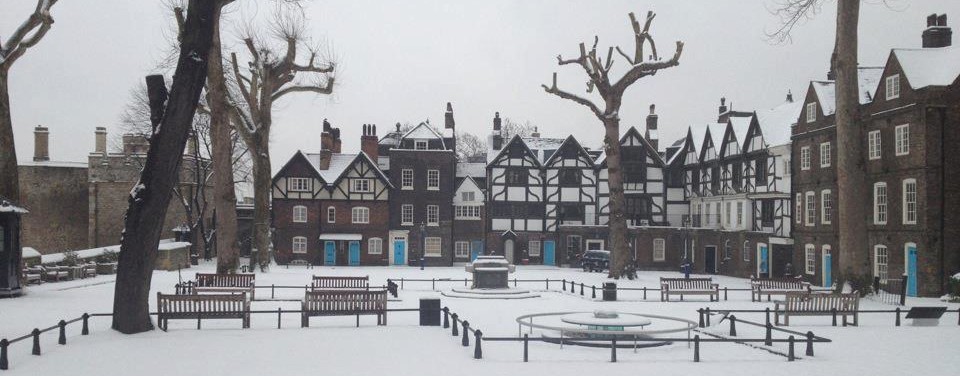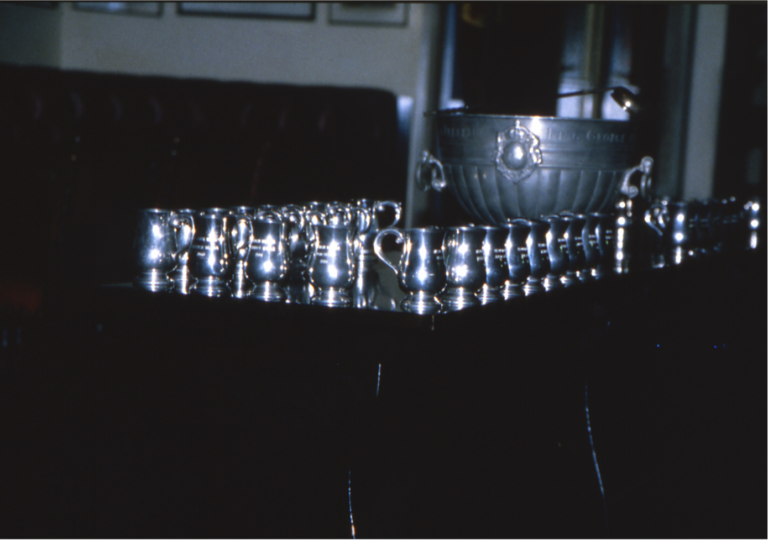Very little is known about Yeoman Warder William Wilkins, he purchased his wardenship on the 15 November 1722, from a William Lott, and on leaving the Tower, sold it Jacob Fish on the 22 August 1738. He would have purchased the Wardenship for around £250 Guineas which is £262.50. The Guinea is £1,1s, (one pound and one shilling), between 1663 and 1813 it was a coin made from Gold which originated in guineas Africa.
Originally a warderships for the Tower were purchased from the Lieutenant of the Tower, a practice stopped on the 10th July 1688, by Orders of the King, as Lieutenants of the Tower would sell the Warderships to very old and informed men. These Warders due to their age and infirmity, would last very long and so they could sell the position again. The Warders then sold their positions, which was sanctioned by the Tower, so if wished to retire I would then put my position up for sale, if I wanted to just stay then on my death the Lieutenant take ownership and sell it keeping the Money. Although the practice seems strange, the money would would be a “Bond” against dishonesty and incompetence, so if I lost a prisoner I would also loss my money.
This practice was common within the British Army in the Infantry and Cavalry, and began around 1683 in the reign of Charles II, it was a cash bond for good behaviour, liable to be forfeited to the Army’s cashiers (accountants) in the event of cowardice, desertion, or gross misconduct, even today an officer who is sacked or asked to leave they are “Cashiered”. The practice was stopped in the Army, 1 November 1871, as part of the Cardwell Reforms. Stopped here at the Tower by Sir Arthur Wellesley, 1st Duke of Wellington, in 1827 when he implored John May.
Although a wardenship was £250 guineas, there were other payments
- To the Warder who surrenders the Wardenship £262 . 10 . 0
- to the Constable £21 . 0 . 0
- To the Secretary £6 . 6 . 0
- To the Gentleman Porter £5 . 5 . 0
- To the Yeoman Warders £5 . 5 . 0
- To the Gentlemen Gaoler £5 . 0 . 0
- To the Clerk of the Cheque £2 . 2 . 0
- Stamp for the Warrent £ 2 . 0 . 0
- Parchment £0 . 1 . 6
- The Governors Servant £0 . 5 . 0
So a total of £309 . 14 . 6 in todays money around £35,961.40 or in 1720 60 Horses!
So William become a Yeoman Warder in 1722, but at the time he was also an Inn Keeper in Newington Butts, and had permission from the Constable to be away from his duty, on his retirement he presented the Yeoman Warders a Pewter Bowl.
William Present the Bowl around 1725. Below the rim, there is engraved – “God preserve King George and the Royal family 1725”.
An extract from our records:
“It is used on all rejoicing days when the guns are fired. How it became the Warders punch bowl is now forgotten (1878) but as the letter “WW” are engraved on the bottom of it as outside, it is supposed that the bowl was presented to the Warders by William Wilkins who was a Warder from 1722 to 1738. He was an innkeeper at Newton Butts in the Southwark, and was permitted by the Constable to be away from his duty in the Tower, all his Wardership”.
It again was not uncommon for Yeoman Warders to have the Job in the Tower and not work here, they would just have to parade at the Tower on the muster days which there were four a year. Even going into the 19 century having jobs elsewere was not uncommon, John May (1) was a Superintendent of A division of the Metropolitan police, Yeoman Warder john Weatherhead (35) here from 1844 to April 1882 was Chief Warder Newgate Prison and then Governor of Holloway Prison, and John Dwane (73) was the Barrack Sergeant Major of Milton Barracks, Kent.
There were some other advantages to being a Yeoman Warder, before the Police were created policing or law inforcement was administered at a local level, with a locally maintained system of Watchmen and volunteers, paid and unpaid Constables and when things became problematic, there were local militaria units who had very poor reputations. A business man live William would be asked upon by their local authority to intake these jobs unpaid, you could decline and there would be fines imposed, being a Yeoman Warder you were exempt all these duties, whoever, Newington Butts, part of Surrey in the 18 c called upon William to undertake a duty and he appealed to his boss “The KING” no less.
Extract from a letter Signed by signed J. Wilkinson deputy Lieutenant of the Tower:
“Gentlemen, I am informed by William Wilkins the bearer of this letter that he is prosecuted at the sessions of the peace held in Southwark in the County of Surrey for not watching and warding in the parish of Saint Mary Newington Butts in the said County, nor for praying for the same.
I must acquaint you that His Majesty by his order in council dated 6th day of December 1714 (as his Royal predicators ( person or thing that predicts that something will happen in the future or will be a consequence of something). heretofore did on their accession to the throne) declare his pleasure to be, that all his servants in ordinary with fees should enjoy their ancient privileges, and in respect of their continual attendance on His Majesty or his service, they should be exempted from the duty of Watching and from bearing public office, or being summoned upon juries, or to serve in the militia, and not to be subject to any fine for the same, His Majesty is hereby pleased to order his proper offices to signify to the justices of the peace within the County of Middlesex, Surrey, that His Majesty doth not take it well that any of his servants in ordinary with fee should be enjoyed to bead any public office, or to watch or ward or to serve in the militaria, and that it is his pleasure they should enjoy the said liberties, Rites and privileges; and his majesty’s Attorney General for the time being is hereby required upon any application made to him, by any of His Majesty servants with fee, to cause a stop to be put to all proceedings then had or, to be commenced against them for refusing to serve in any of the public offices aforesaid.
I hereby therefore acquaint you that William Wilkins is one of the Yeomans of his Majesty’s Guard extraordinary and one of the Yeoman Warders of the Tower of London in ordinary your will I hope give direction that future proceedings against William Wilkins may be stopped and that his Majesty’s order will be observed to the justice of the peace for the County of Surrey signed J. Wilkinson deputy Lieutenant”.
Strong Stuff
is a coin that was minted in the Kingdom of England between 1663 and 1813. It is not used any more. The gold used to mint the first was mined in the region of the same name in.
Although guinea coins had not been made for a long time, prices often continued to be shown in guineas until British prices became decimal in 1971. A guinea was worth . This is the same as £1.05 in modern money.
Because a guinea was close to a pound, putting prices in guineas made the price seem less. A price of 39 guineas might look like “about £39”. In fact it is nearly £41. Prices in guineas were traditionally used for luxury goods before decimalisation. Saville Row tailors, bespoke boot makers, fine jewelers, and expensive motorcars were always priced in guineas.


Leave a reply to Yeoman Warder William Wilkins